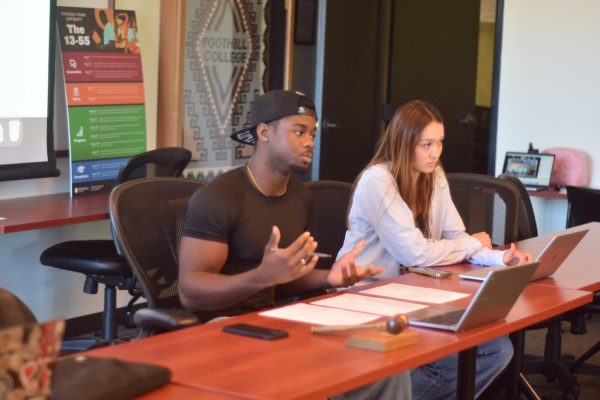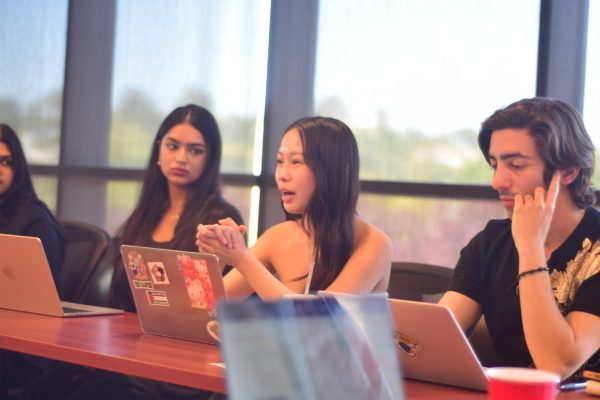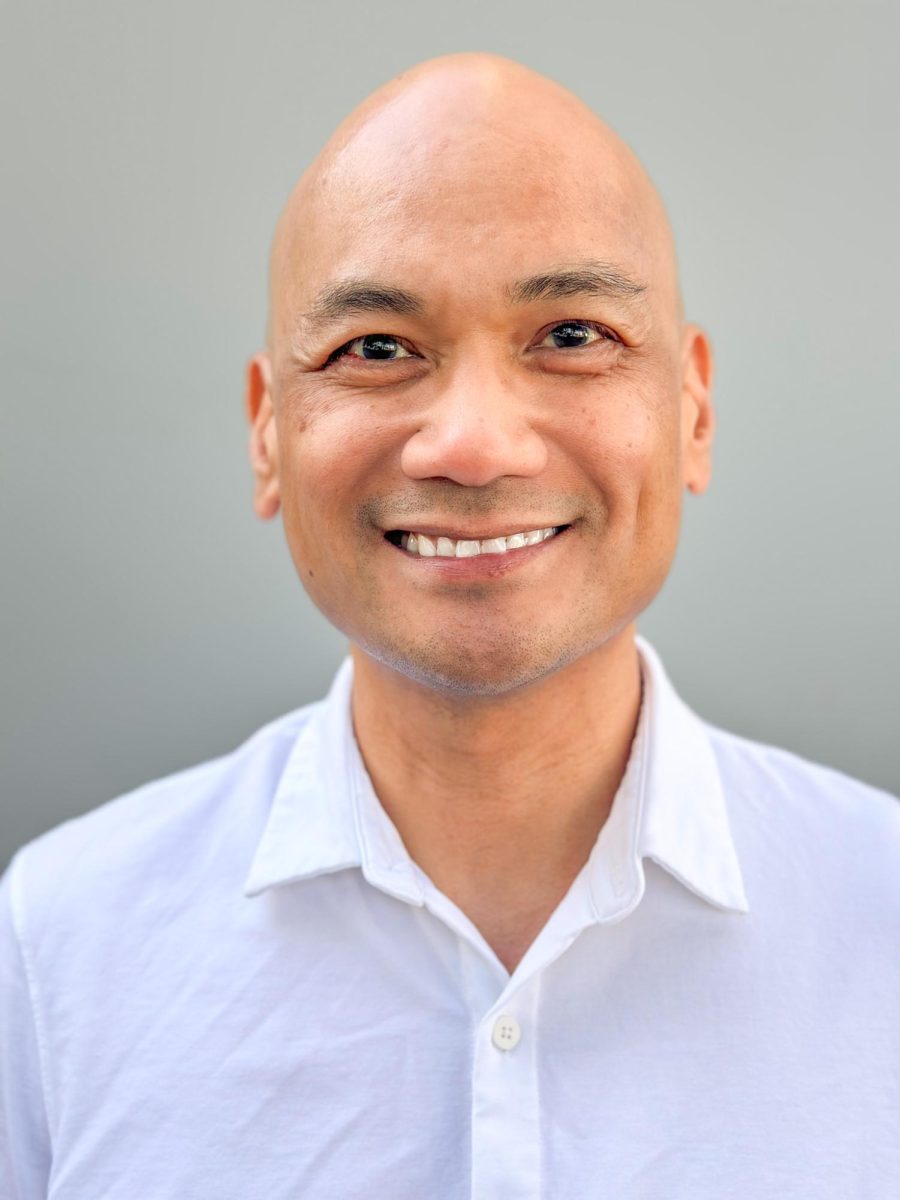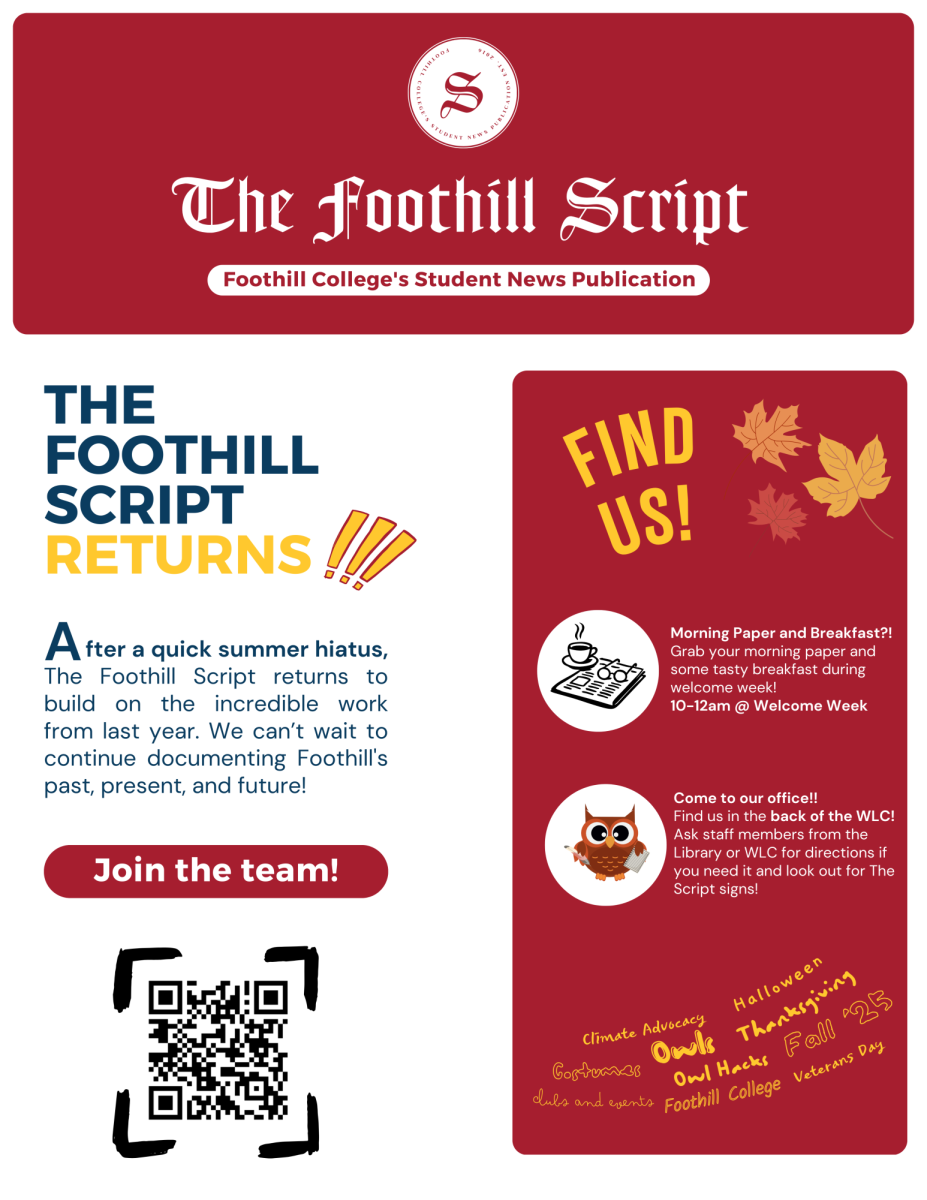
At 2:00 PM on April 11th, 2024, the Associated Students of Foothill College (ASFC) Campus Council convened for their weekly Senate meeting, and students frustrated with Foothill administration and leadership’s apparent silencing of discussion attended.
The campus council included representatives, both elected and appointed students, and was chaired by our ASFC President Josh Agupugo. Agupugo served as the only voting member of the Foothill student body at the April 8th Academic Senate (AS) meeting in which a bill entitled ‘Resolution Recognizing Sustained Peace and Safety for All Students’ (RRSPAS) was on the table. This bill would have primarily called for a ceasefire on both sides of the Palestinian genocide, and offer educational and mental health services for all students affected by the events.
This resolution is not the first of its kind, by any means. For example, the Santa Clara Board of Education passed a resolution entitled ‘Resolution Recognizing Sustained Peace and Safety for All Children’ on January 29, 2024. This bill called for a “humanitarian ceasefire in Gaza and the release of all hostages” nearly 3 months ago. This puts Foothill College well behind the humanitarian efforts of Santa Clara County regarding this issue.
Despite receiving a petition with 480+ signatures from students, faculty, and alumni urging him to vote for the resolution, Agupugo, as the only student voice in the Academic Senate, decided, alongside 11 faculty members, to vote to table the bill and end discussion of the bill entirely.
The 30 or so students and faculty in attendance at the Academic Senate meeting were visibly shocked and appalled by his vote to silence discussion. Galvanized by a necessity to hold their elected officials accountable, 6 brave students went in person (with more calling in via Discord and Zoom) to the Campus Council meeting to discuss their grievances in a diplomatic manner and speak out. As Elie Wiesel, holocaust survivor and bestselling author of ‘Night’ eloquently stated, “We must take sides. Neutrality helps the oppressor, never the victim. Silence encourages the tormentor, never the tormented.”
Though other projects and issues were discussed at the meeting, such as the upcoming ASFC elections and the opening of a meditation space in the bamboo garden, these were largely overshadowed by the complaints and protests of students that felt unrepresented by our president and were unable to voice their support for the RRSPAS. Their primary concern revolved around Agupugo’s perceived deviation from the expected conduct of a diplomatically elected representative. His initial demeanor seemed to lack self-reflection regarding the potential ramifications of his actions. Rather than engaging in introspection, he chose to justify his decision with statements that some viewed as contradictory or hypocritical.
When asked why he voted against the wishes of the petition and general student body, Agupugo said, “When I first opened my inbox Monday morning [the day he voted to table the resolution], I wasn’t able to actually call to find out how many students were in support and not in support.” He continued, “I was urged to vote yes, but I didn’t have time to go around the college, I didn’t have time to go to, like, even the entire college, I didn’t have time to survey every single student.”
One has to wonder that if he didn’t have time to gather further information, then why did he vote to silence discussion, especially given the fact he received this petition, and despite the group of students and faculty that showed up with the intention to speak their mind. Nicole Nguyen, Foothill Student Trustee, responded later to his statement with, “I think when we talk about how you [Josh] needed more time to understand what the students wanted, I feel like your vote contradicted that wish. If you had voted yes, in terms of having a dialogue, about what the resolution meant to the Academic Senate, there would have been time to talk about why you think this is out of the purview of the Academic Senate.”
Nicole was one of the standouts from the meeting, though by no means the only one, as she eloquently and calmly brought up valid concerns for equity and safety saying, “In general, academic senate is not restricted to discussions about curriculum, and I think education is so much more than just a paper and a pen and testing,” to which the president interrupted and countered, “Unless we also want the Academic Senate to mention the safety and quality of bathrooms, the safety and quality of food in the cafeteria, and all those kinds of things, then the Academic Senate should have its own kinds of duties.”
To which Nguyen said, “Yes, obviously I want the Academic Senate to be touching on all those things.”

Additionally, this excuse rings hollow considering he has himself, on March 4th, brought up concerns to the Academic Senate about dining options. According to the Academic Senate Minutes, “Joshua also mentioned that many students comment that food services aren’t available after midafternoon” showing that he knew the purview of Academic Senate extends beyond purely classroom settings.
The Academic Senate has also previously passed resolutions to address mental health during times of crisis for students, such as the Resolution on Supporting the Mental Health of Black Students in 2021 during the height of the BLM protests, showing that this is well within their ability and responsibilities.
The Student Trustee was frequently interrupted by the President while discussing the basic equity needs for students on campus, making a comparison to the debate that the Academic Senate previously held on tasers being carried by campus police being under the purview of the Academic Senate. Senate Chair Molara Mabogunje chimed in to de-escalate with, “Not to halt this conversation, but it’s not a good mood in the room for this conversation, so we should keep it according to the Brown Act, and proceed accordingly.” The Senate Chair consistently encouraged constructive dialogue, and later also quipped “I think different bodies (in reference to student body organizations) could support, so I would say don’t let it die at the Academic Senate.”
The discussion furthered as a participant raised concerns about the bill’s lack of inclusivity. Amit Freikorn, ASFC VP of Activities, stated, “I’m here to represent the students as well, some of my friends are club members [of the Jewish Student Union[ and were hurt by this… if we could form some sort of committee, go over it, find a good vote on a good resolution for all sides and pass it.”
An agreement was made about the committee being formed, but when asked about what specific concerns were brought up with the bill she responded with, “I don’t know, but I’ll go over it with the Jewish Student Union and bring you guys back a list of points.”
When asked whether they would be comfortable passing something at the ASFC level, officials deliberated further. Agupugo responded that “The entire point of this is to have something passed at the ASFC level but there would have to be another round of conversation or a student wide survey, bringing in the perspective of every single group and every single person on campus,” hopefully indicating a change in heart when it came to diplomatically arriving at a solution.
Daphne Small, Academic Adviser to the ASFC, who did an excellent job mediating given the tension in the room stated, “It sounds like there’s some momentum to gather, and come up with a solution that works for students.” The president also stated, “Moving forward, we’ll have a topic like this [Resolution Regarding Sustained Peace for Students] on the agenda, and we can pass a resolution that encapsulates every student and every voice.” The Student Trustee responded “Absolutely, I think this is the beginning of a conversation that needs to be had.”
Despite all of the dialogue that took place, as has been detailed in this piece, the ASFC’s official minute meetings regarding the public’s outcry were recorded as “Public Hearing and Comment: B. Public Comment. Public comments were received.” This completely glossed over the legitimate complaints of students, and shows a lack of transparency. While the ASFC is a student organization that is supposed to uplift student voices, they intentionally chose to repress their complaints about the student government.
The preamble to the constitution of the ASFC, which we are all a part of, states, “We, the students of Foothill College, with the approval and subject to the control and regulations of the governing board of the Foothill De Anza Community College District, in order to promote the general welfare of students, to foster a spirit of democracy and unity in all student activities, to promote the growth and development of the college, and to better college community relations hereby establish this Constitution.”
We hope the people acting as our elected officials can handle the upcoming democratic process and open up discussion regarding what we can do as the associated students about the situation in Gaza, and sincerely do their best to uphold these values.
If you’re interested in advocacy and being a part of the democratic process, the ASFC meets weekly on Thursday from 2-4 p.m. in the Toyon Room (Room 2020) with a public forum for all students to raise concerns or suggestions, and it is totally open to the student public.





















































































